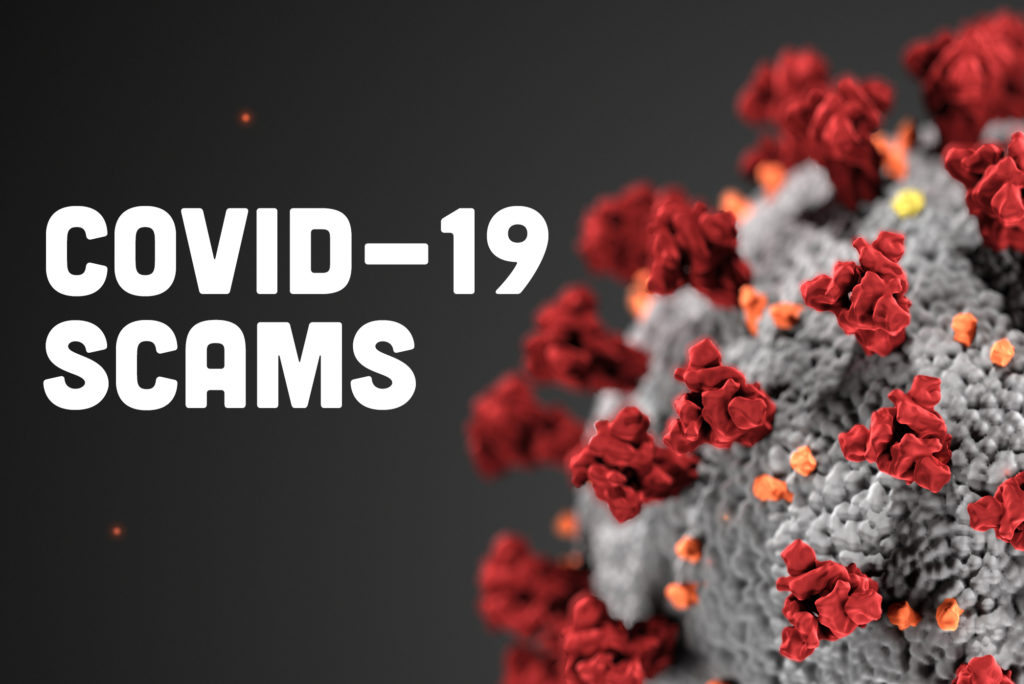
As information – and misinformation – spreads about the global COVID-19 pandemic, scammers and cybercriminals are taking advantage of the situation. Below are some of the scams that agencies have reported in recent weeks.
“Phishing” emails
A “phishing” email is a method scammers use to procure sensitive information from a user. During a phishing attempt, the sender of the email or text message will try to deceive the target by claiming to be from a legitimate source. The sender may appear to be working for a legitimate agency or may direct the target to click on a link to a website that appears similar to the real website.
Scammers will try to trick you into giving them sensitive information, like your Social Security number, your bank accounts number, or your password. They may prompt you to click on a link (which you should not click on) or open an attachment (which you should not open).
The World Health Organization (WHO) has reported that some criminals are sending emails in which they pretend to be WHO employees. WHO advises the public to make sure the sender has an email address that follows this format: ‘person@who.int’.
If there is anything other than ‘who.int’ after the ‘@’ symbol, this sender is not from WHO. WHO does not send email from addresses ending in ‘@who.com’ , ‘@who.org’ or ‘@who-safety.org’.
The Federal Trade Commission (FTC) advises the public to be on the lookout for emails from scammers claiming to be from the Centers for Disease Control and Prevention or claiming to be an expert on COVID-19 who has information to share. If these emails include attachments or links, do not click on them.
Misinformation
During a time of crisis, when news is rapidly developing, it can be easy to fall victim to misleading or false information.
Know where information is sourced. For reputable information about the pandemic, visit the Centers for Disease Control website or the WHO website – both of which have dedicated sections for updates related to the COVID-19 outbreak.
For updates from within the state, visit the Massachusetts Department of Public Health online.
False Claims
The FTC and FDA have recently issued warnings to seven companies claiming that their products (such as teas or essential oils) will cure or prevent the spread of COVID-19. No such product exists, according to the FDA.
The companies that received letters about false claims are: Vital Silver, Quinessence Aromatherapy Ltd., N-ergetics, GuruNanda, LLC, Vivify Holistic Clinic, Herbal Amy LLC, and The Jim Bakker Show.
Scammers may try to sell bogus products through email, texts or social media posts. The FTC urges you to exercise caution if you see an ad online or on social media that claims to prevent or treat COVID-19.
Be cautious when donating to a charity or a crowd-funding website. The FTC warns that “if someone wants donations in cash, by gift card, or by wiring money, don’t do it.” Visit the FTC’s charity scams website for more information.
More Information
For information on COVID-19-related scams – and what you can do to protect yourself – view a guide for consumers by clicking here. This tip sheet was prepared by Senior Medicare Patrol.

Recent Comments